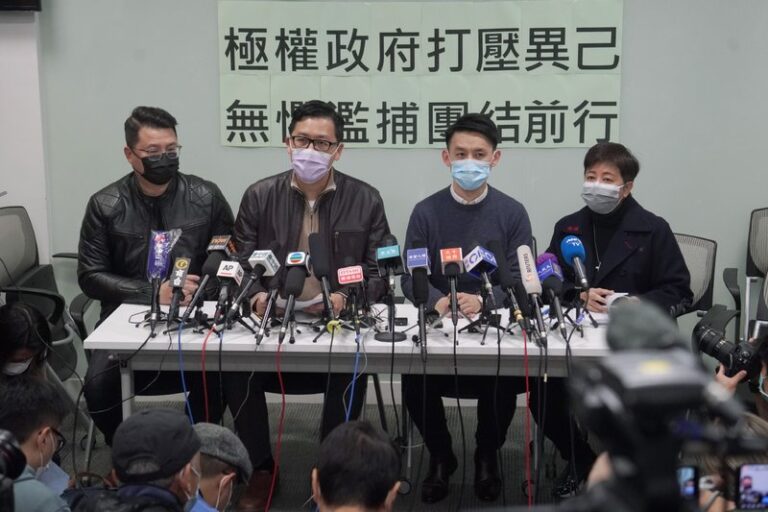
(AP) — The foreign ministers of Australia, the United States, Great Britain and Canada issued a joint statement Sunday expressing “serious concern” about the arrest of 55 democracy activists and supporters in Hong Kong last week.
The arrests were by far the largest such action taken under a national security law that China imposed on the semi-autonomous territory a little more than six months ago.
“It is clear that the National Security Law is being used to eliminate dissent and opposing political views,” the four foreign ministers said.
The Chinese and Hong Kong governments say the law is needed to restore order in a city that was rocked in 2019 by months of often violent anti-government protests demanding greater democracy.
Most of those arrested last week had taken part in an unofficial primary for a legislative election that was later postponed. Authorities allege the primary was part of a plot to take control of the legislature in order to paralyze government and force the city’s leader to resign.
The 55 have not been charged, and all but three have been released on bail pending further investigation. Convictions could disqualify them from running for office.
The four foreign ministers said the next legislative election should include candidates representing a range of political opinions. Only half the city’s legislature is elected by popular vote.
“We call on the Hong Kong and Chinese central authorities to respect the legally guaranteed rights and freedoms of the people of Hong Kong without fear of arrest and detention,” they wrote.
The statement was signed by Marise Payne of Australia, Francois-Philippe Champagne of Canada, Dominic Raab of the U.K. and Mike Pompeo of the United States.
Separately, Pompeo announced Saturday that the U.S. is voiding longstanding restrictions on how its diplomats and others have contact with their counterparts in Taiwan, a self-governing island that China says should be under its rule.
The actions on Taiwan and Hong Kong will undoubtedly anger China, which views such moves as foreign interference in its internal affairs.
The Trump administration, which is in its final days, is also sending Kelly Craft, its ambassador to the United Nations, to Taiwan later this week. China has sharply criticized the upcoming visit, while the Taiwan government has welcomed it.






